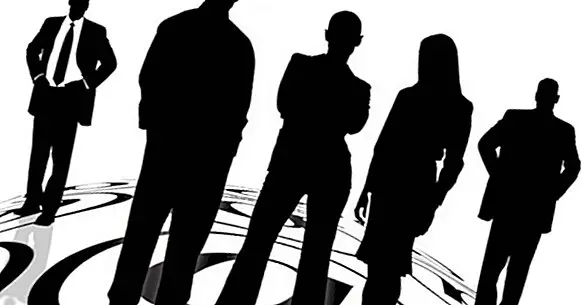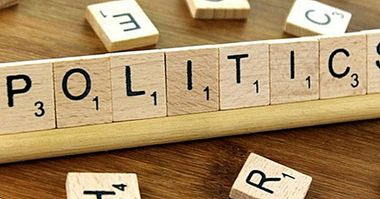Individual vs. Group: Why do people change when belonging to a collective?
At the moment when an individual is related to a group of people, he usually feels that he is part of a group that exceeds him, and this feeling can lead to detachment of its ethical values and to direct their decisions and actions in a way that I never would have imagined as an independent individual.
That is what many historical events have been able to verify throughout the centuries.
Individual and group: investigating the influence of the collective on the subject
Recently, an investigation carried out by Carnegie Mellon University was published, which has delved into this phenomenon of social psychology to try to unravel How is it possible for people with moral values to commit perverse acts? when they are protected or legitimated by a group, ignoring their ethical principles.
The researchers compared the brain functioning of people when they were without company and when they were in the company of a group of people.
The study arose from the inspiration that caused one of the main researchers an experience during a football match. Her husband went to a soccer match wearing the cap of one of the teams that were fighting the match, but had the bad luck to sit in a town surrounded by supporters of the opposing team, which had to receive countless insults and expletives. The researcher, who was accompanying her husband in the neighboring town in the field, thought that if she put on her cap, the followers would moderate their insults (or even cease) out of respect for a woman.
However, that was not what happened. In that instant, the psychologist wondered if there could be any neurological reason for this group behavior.
When the enmities go from interindividual to intergroup
Essentially, there are two basic reasons why individuals change their behavior when they form (or feel they are part of) a group. These reasons are:
Basically, there are two fundamental reasons why people behave in a different way When they are part of a group, they are:
1. Perception of anonymity
2. Perception of less risk of being punished for his misconduct
However, in this investigation the intention was to inquire about the ethical conflict that happens to the individual when he is part of a group, and see to what extent the group could have an inhibiting effect on individual moral principles.
In the experiment the participants were asked to answer some questions that showed a insight about its ethical principles. In this way, the researchers modeled some individualized statements, such as: "I have stolen food from a common fridge", or "I always ask for forgiveness when I trip over someone".
Next, the subjects were invited to participate in a game in which they had to reflect on some of the aforementioned phrases, and while they played, their brains were observed by means of a scanner. In order to discriminate the neurological effects, some participants played alone, while others did so as part of a group.
Results
The people who played without any company and therefore reflected on their moral judgments alone, showed an increase in brain activity in the region of the medial prefrontal cortex, which is the area where thought about oneself operates. People identified completely with the phrases that were exposed, so it was not strange to find those results.
Less expected was that when the subjects who played in a group reflected on these ethical statements, their response was of a minor intensity. This suggests that the level of identification of the sentences was weaker before their own moral beliefs .
The diffusion of the self
The scholars concluded that our judgments about ethics become more flexible when we are part of a community , because we feel that the group has a value that tends to attenuate our personality and beliefs. In the context of belonging to a group, we become anonymous subjects since our priorities and beliefs change when we change the identity of the "I" to the "we".
In consecuense, we tend to reconfigure our beliefs and values to those of the group , which is detectable even at the brain level. This metamorphosis can have a perverse effect, because if we stop recognizing and identifying ourselves with certain moral values, we are more inclined to not experience rejection or remorse before certain actions or attitudes, and in this way we become benevolent before spurious, violent or perverse conducts. .
Bibliographic references:
- Cikara, M. et. To the.(2014) Reduced self-referential neural response during intergroup competition predicts competitor harm. NeuroImage; 96 (1): 36-43.



















